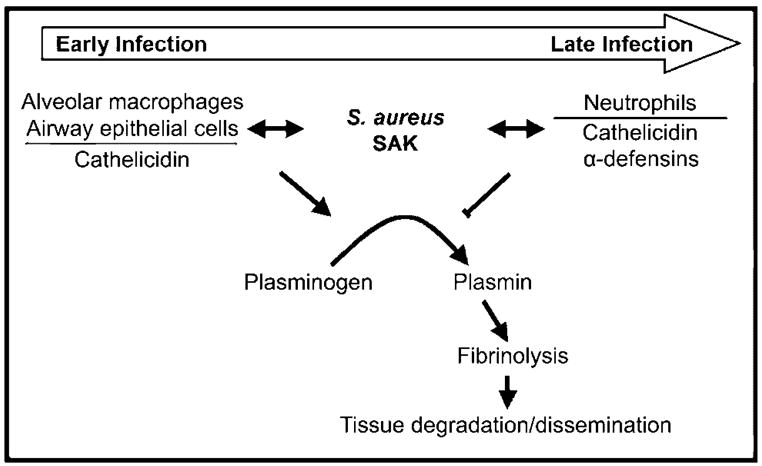Figure 7.

Opposite effects of host antimicrobial peptides on staphylokinase (SAK)–dependent fibrinolysis. Cathelicidin, which is produced by resident alveolar macrophages and airway epithelial cells during early stages of infection, enhances SAK-dependent plasminogen activation and fibrinolysis. Increased fibrinolysis may lead to host tissue degradation within the airways, as well as to bacterial dissemination to the bloodstream. As infection progresses, recruited neutrophils release both cathelicidin and α-defensins. This results in the inhibition of SAK-dependent plasminogen activation and fibrinolysis, which may serve to confine the pathogen and control infection.
